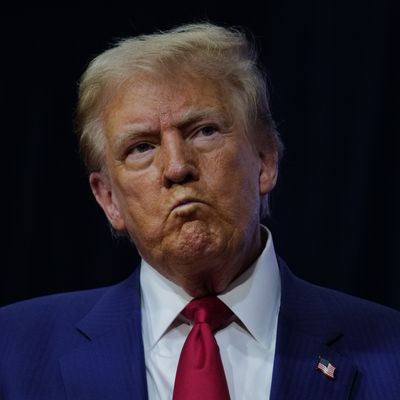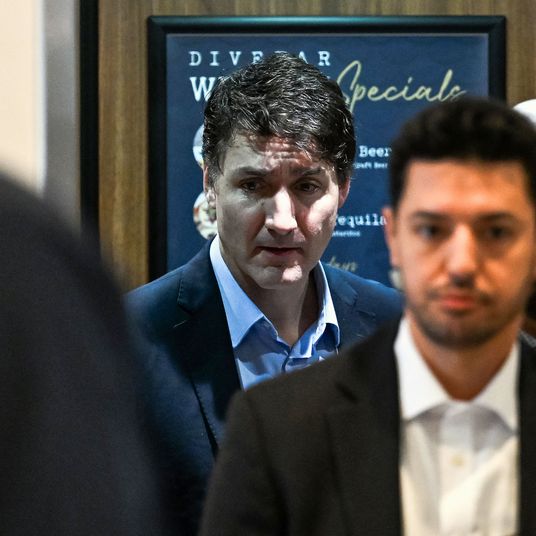
It has hardly been a month since presidential candidate Donald Trump started hawking digital tokens in something called World Liberty Financial, a loosely defined lending business that mimicked some of the more spectacular failures of the last crypto bubble. Basic questions about the business — What exactly is it? How does it work? What is newly matriculated NYU freshman Barron Trump doing as one of the company’s “Web3 Ambassadors”? — have gone unanswered. And if the point of World Liberty Financial is simply to raise a ton of money through unregistered securities offerings, historically a pretty lucrative business in cryptoland, even that has gone awry. In the opening hours of trading, a period of maximum hype, the company has raised a paltry $12 million or so, falling far short of its $300 million goal.
This shortfall has no clear explanation. Trump has been unabashedly courting crypto investors for most of this election season. At a bitcoin conference this summer, Trump laid out his crypto-centric vision of a second term: He would create a digital stockpile of the digital currency and make the U.S. the “bitcoin superpower of the world.” He vowed to rein in the Feds and ax Gary Gensler, who, as the chair of the Securities and Exchange Commission, has been a bogeyman for the industry. There has also been a surge in the value of one of his other nebulously defined companies, Trump Media & Technology Group, which has more than doubled its share price since late September and added more than $2 billion to Trump’s personal (but paper) fortune.
The World Liberty Financial token sale, meanwhile, has been plagued with problems. For a while, the site went down, making it nearly impossible to buy the tokens. But even if it worked fine, it wasn’t clear how many people would have actually been able to purchase them. The company’s Telegram group has made it clear that the tokens would be sold only to accredited U.S. investors — that is, people who are professionals or are just extremely rich — as well as investors overseas. In other words, not just any Trump fan could buy in. (Whether the company is actually holding to that is another matter. On October 11, I received an email pushing me to buy them, despite having no accreditation whatsoever. “We are pleased to inform you that, as a confirmed Whitelist entrant, you are now eligible to register for the upcoming $WLFI public sale,” the email said.) As of Wednesday morning, fewer than 3,000 people actually bought the tokens.
The other reason this venture is floundering may be that it is so clearly a way to scam people out of their money. The thing about Trump’s NFTs, or his golden sneakers, or even the shares in his meme-stock social-media company, is that there is a clear market of willing buyers. Maybe they want to show off how much they love Trump with their sneakers, or they think that, if he wins another term, an NFT of his likeness will skyrocket in value, and they can just sell it to someone else. This is not so with World Liberty Financial. It is written into the terms and conditions that buyers are barred from creating a secondary market for these tokens for at least a year, but probably forever. “You should assume that the Tokens are non-transferable indefinitely,” according to the company. In other words, once you buy it, you will probably never be able to sell it. The only reason to buy this is to use it as a way to vote on the direction of the company, the way shareholders vote on proxy measures every year or so for public companies. No wonder crypto-loving Trump supporters are steering clear.
All told, whatever amount Trump raises through his crypto platform will dwindle down even further, as some of the money will presumably be needed to keep the nascent company running. (And the money will barely make a dent in the election-spending wars, where deep-pocketed donors are doing Trump’s heavy lifting.) Perhaps, after Trump flooded the memorabilia market with shares of his company, sneakers, and NFTs, he’s found that the market for his sales gimmicks is tapped out.






























